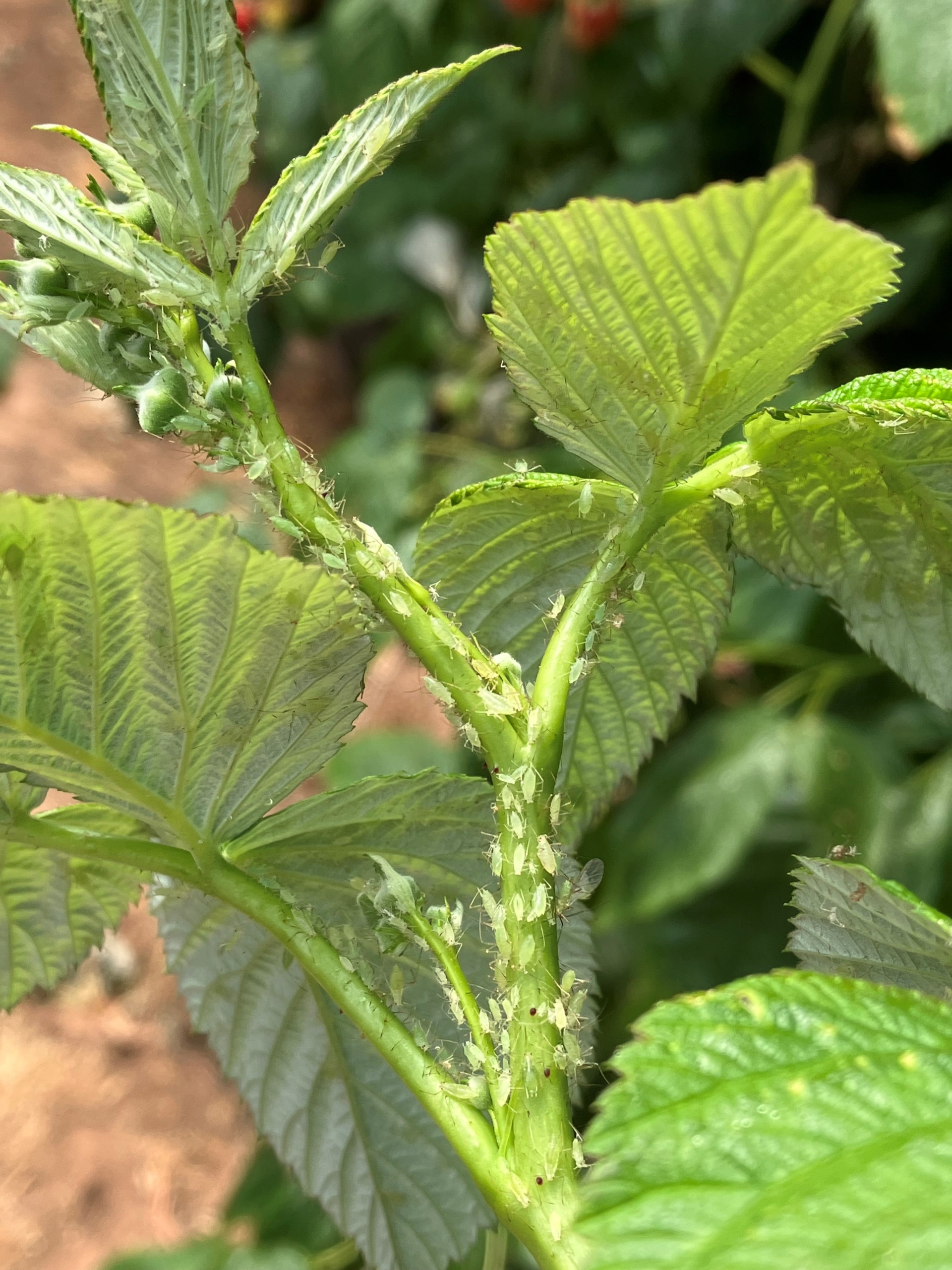

Source: ADAS.
Controlling aphids on raspberry crops easier this spring
There is good news for both outdoor and protected raspberry growers as EAMUs for Certis Belchim insecticide Mainman (flonicamid) have come through after two years of effort by AHDB in time for this season.
The management of aphids on raspberries has become a headache for agronomists and growers recently as so many actives have been lost.
Protected raspberry crops are vulnerable in April/May with the main aphid species causing problems being the large raspberry aphid (Amphorophora idaei).
Emiliyan Atanasov, who has covered the West Midlands for Berry Garden Growers for the last six years, says: “Aphid control has been extremely challenging recently – in fact the only major challenge – with control of the large raspberry aphid being more problematic than other aphid species.
“Parasitic wasps such as Aphidius ervi were not always able to deliver consistent results and establishing populations of other beneficials in time to match the speed of reproduction of this pest has proven difficult and very expensive.”
Emiliyan considers Mainman a great addition to the now slender portfolio of raspberry crop protection products, due to its different mode of action and safety to beneficial species in IPM programmes.
He says: “With only two applications and the nine-day harvest interval to consider on protected crops, it is important to think about the strategy of when to use it.
“As we were seeing aphid eggs already hatching from early March, we’re planning to begin control with Mainman in April.”
In addition to the control of large raspberry aphid, the EAMUs relate to the small raspberry aphid (Aphis ideai) and potato aphid (Macrosiphum euphorbiae).
Certis Belchim’s Jeremy Booth says it’s important to read the EAMU documents as the recommendations for use differ between outdoor and protected raspberry.
“In both situations the maximum individual dose is 0.14 kg/ha and two treatments are permitted per year, but earliest time of application, water volumes and latest time of application differ and are use specific.”